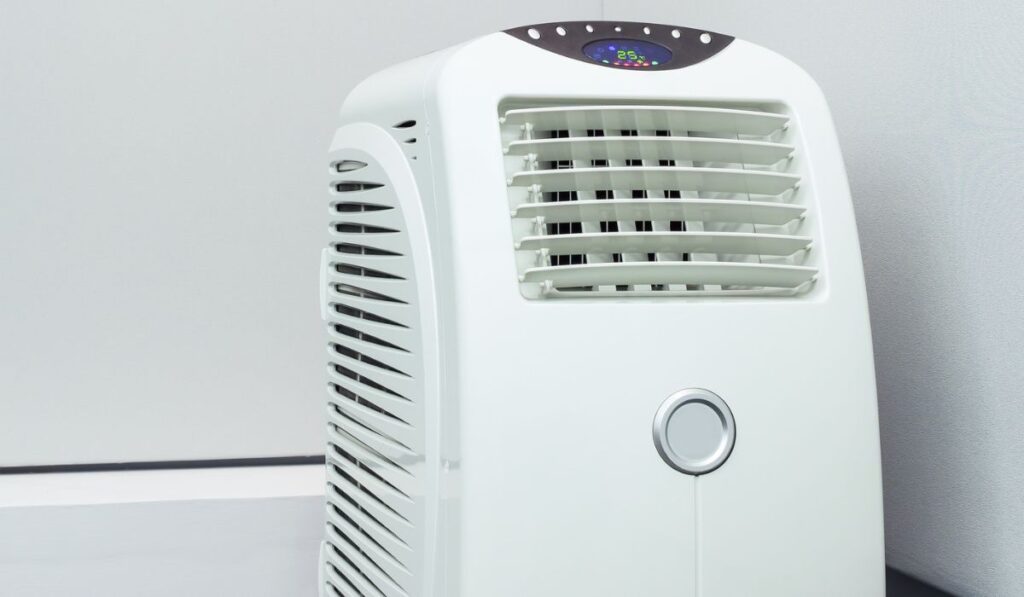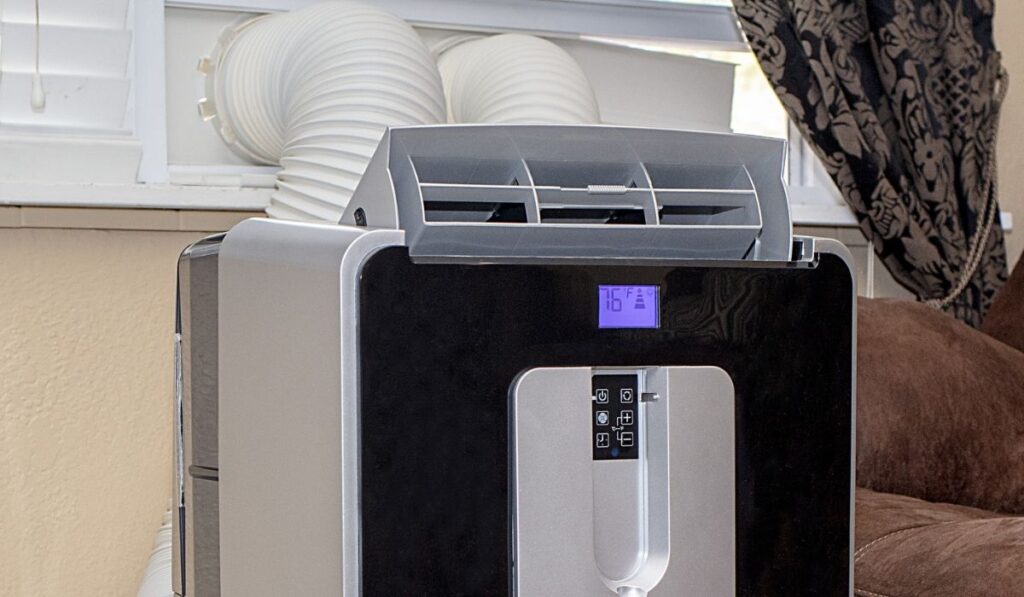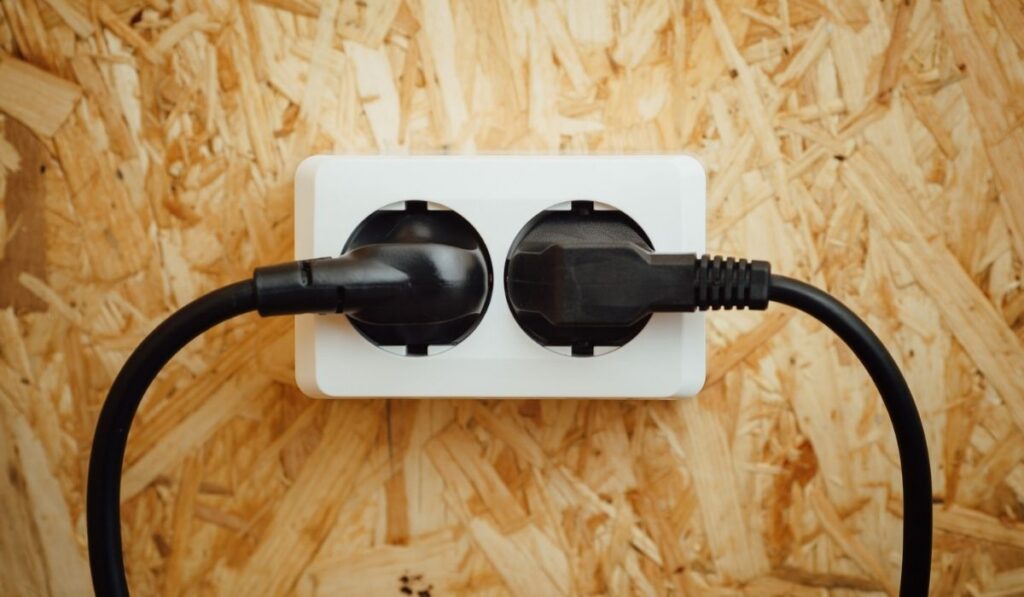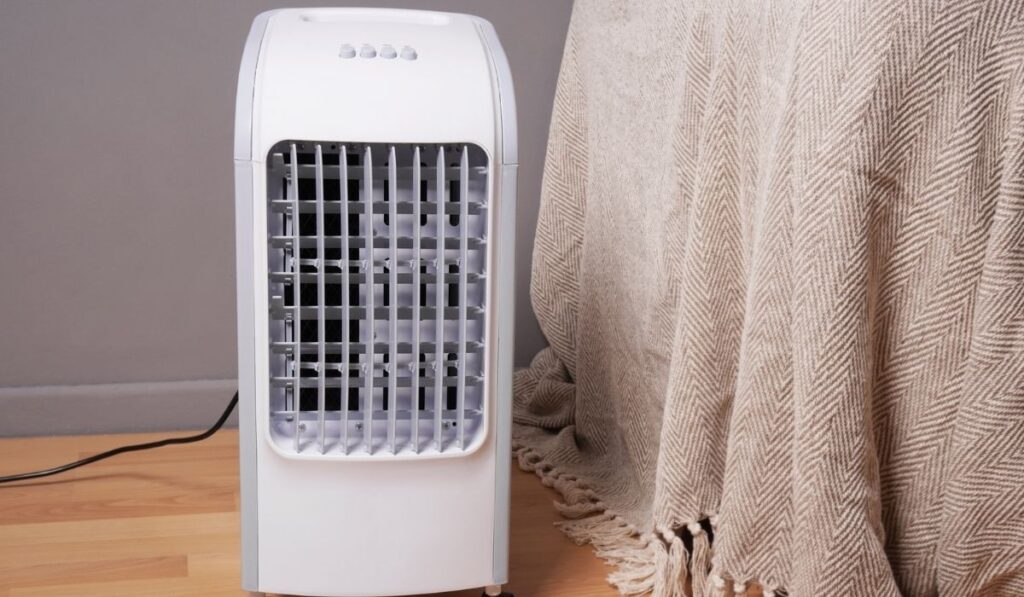There are times when the hot weather is unbearable and unrelenting. On those days, all you want to do is relax at home with your portable air conditioner pumping out cool air in whichever room you find yourself in. But is it safe to keep your portable AC on all day long?
You can keep your portable air conditioner running all day long. However, doing so will lead to higher energy consumption and the need for more frequent maintenance. Make sure to clean your filter as needed to prevent issues with your device.
Keeping your portable air conditioner on during the hottest days can feel like a necessity, so let’s take a closer look at whether that’s possible and what the potential risks may be.
How Long Can You Run a Portable Air Conditioner?

The truth is that you can run your portable air conditioner (PAC) as long as you want. There is no specific time frame within which you need to turn it off. That’s why most portable air conditioners have a timer that you can set for 24 hours.
In addition, you don’t have to worry about overheating. Yes, you will feel that the portable air conditioner’s body parts may heat up, but it shouldn’t cause electrical damage or a fire.
That said, giving your portable air conditioner a periodic break after it cools the room is beneficial — not just for the appliance itself but on your end as well.
Is It OK to Run a Portable Air Conditioner 24/7?
It is not necessarily harmful to use an air conditioner 24/7. However, it may cause some problems in the long run. Here are some potential consequences:
High Energy Consumption
Of course, the more you use an appliance that runs on electricity, the higher your energy consumption will be, no matter if the device is advertised as being energy efficient. Prolonged usage of your PAC will increase your power consumption.
It is advisable to use portable air conditioners with inverter technology to at least lower your electricity bill.
Another way to keep your energy consumption in check is to use the right air conditioner for your room size. This will help the PAC cool the room efficiently.
If the room area is too big for the actual cooling capacity of the PAC, then it will have a hard time cooling the space. Hence, it will need more power to do the job.
Reduced Lifespan and More Maintenance
As you use your portable air conditioner more often, your air conditioner will need to filter more dust. You will therefore notice that you need to clean your portable air conditioner more often than usual.
If you don’t clean your filters regularly, they will get dirty and clogged. Dirty filters can lead to higher energy consumption and affect your unit’s lifespan.
However, cleaning the filters on a regular basis will significantly help maintain your portable air conditioners’ health. It will also promote clean, bacteria-free air in your home.
Decrease in Dehumidification Capability
One of the roles of a PAC is to dehumidify as it cools the room temperature, but if it’s constantly on all day long, it will lose its capacity to do so.
Usually, the operation of your PAC is divided into several intervals. This provides an ample amount of time for the PAC to dehumidify. It will be hard for the portable air conditioner to dehumidify if the small intervals to operate dehumidification are gone due to constant operation.
Can a Portable AC Overheat?

Extreme usage of the portable air conditioner should not cause overheating unless there are problems inside the electrical parts, as we describe below.
Overheated Compressor
The compressor is the part that helps in cooling the air together with the condenser coils. If the heat from the compressor is unable to go out, it will stay inside the motor and heat the inside parts.
In order to fix this, check out the hose to see if there’s anything blocking the air from escaping. If the heat continues to build up inside, it will cause the compressor to shut down.
You can also place the PAC further away from the window. Then, let the portable air conditioner cool or rest for 15 to 30 minutes. After that, the portable air conditioner will usually work as usual.
If it continues to overheat, seek professional help.
Dirty Condenser Coils
The condenser coils work by absorbing the heat from the air and then releasing cool air. If the coils are covered by dirt, they’ll have a hard time removing the heat. The dirt covering the coils acts as a wool jacket during summer. Instead of releasing the heat, it contains the heat inside.
If this continues, it will release hot air inside your room instead of cool air. Hence, you must clean it regularly to avoid overheating.
Dirty Air Filter
The filter is similar to the condenser coils; if it’s dirty, it blocks the airflow of the portable air conditioner. This results in the prolonged time needed by the portable air conditioner to cool the room.
If that continues, it can overheat the motor. This is not because of the prolonged usage but because of the dirt inside.
Low Refrigerant
There are some signs that a portable air conditioner may be low on refrigerant. One is that the PAC cools the room more slowly than usual. There might be a leak inside that isn’t visible outside. If that’s the case, you need to contact a professional to fix this.
Do Portable Air Conditioners Use a Lot of Electricity?

Some people are apprehensive about portable air conditioners because of their electricity consumption. Some say it’s just right; others say it consumes a lot and mostly takes over your electricity bill. Let’s look at the facts.
Midsize portable air conditioners use 2,900 watts per hour on average. Larger portable air conditioners can use around 4,900 watts per hour.
These numbers fluctuate depending on several factors:
Cooling Capacity
This is one of the most significant contributors to your portable air conditioners’ energy consumption. Cooling capacity is measured in British thermal units or BTUs. In general, you need 20 BTU per square foot of space. You also need to consider the climate and your home’s structural features.
The larger your room is, the more BTU it will need; hence, the portable air conditioning unit will use more energy consumption.
Seasonal Energy Efficiency Rating (SEER)
Not every air conditioner has a BTU efficiency rating. In that case, you can also refer to the SEER rating of the unit. The cooling output per season is divided by the wattage it consumes per hour. A PAC is considered more efficient if it has a higher SEER.
The federal government also requires 13 to 14 as a minimum requirement, depending on your area. There are some units with a SEER as high as 25.
Climate
Climate has a major impact on the temperature inside your room. The materials used inside your room structure can be a factor too. There are materials that are easy for the temperature to pass through, such as cement or wood.
If the climate or weather is extremely hot or humid, you’ll need a portable air conditioner with higher BTUs. Your portable air conditioner will need more time to cool the room; hence more energy is required.
Routine Maintenance
The accumulation of dirt in your PAC’s filter can contribute to the low efficiency of your unit. Dirt hinders the processes of the portable air conditioner, resulting in more electricity needed to perform at its peak.
You can take your portable air conditioner for a professional check-up at least twice annually. Filters should be changed or cleaned as needed, depending on which type you have.
Temperature
Regular changes to the temperature settings will consume more energy because the portable air conditioner will need more power to reach your desired setting. Manufacturers recommend that users always set their temperature setting at the default 75 degrees to lower energy consumption.
However, if the weather isn’t cooperating, you can change the temperature setting depending on your preference. Just expect a rise in your electric bill. Energy consumption also increases when you regularly turn off your portable air conditioner. Turning it off periodically means that the PAC must repeat the cooling process.
How Long Do Portable Air Conditioners Last?

Portable air conditioners last around 5 to 10 years. PACs generally have the shortest life span of all air conditioners. There are several reasons why they have the shortest lifetime, including their portability and the materials they’re made of. PVC usually doesn’t last as long as steel or aluminum.
In order to prolong your AC’s lifespan, you can practice healthy usage tips such as regular cleaning and maintenance. Dirt plays a vital role in degrading the capability of your PAC.
You must also check the size of the room to buy a PAC with the correct BTU. It’s also best to opt for trusted brands. We recommend the BLACK + DECKER 14,000 BTU Portable Air Conditioner (on Amazon).
